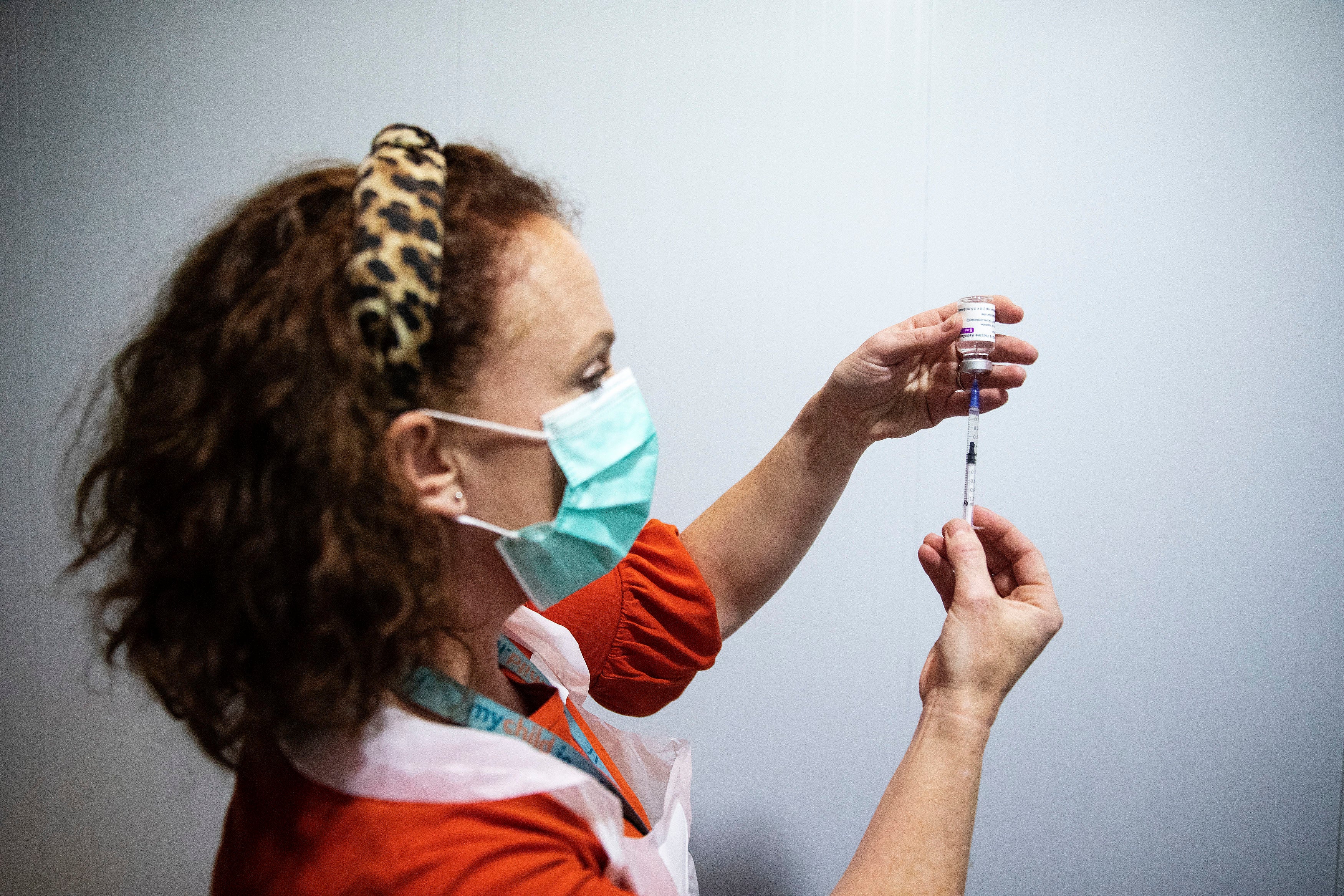Doctors urged to look for signs of stroke after young patient dies following AstraZeneca vaccine
Experts stress chances of developing stroke still extremely small

Doctors are being urged to look out for signs of stroke in people receiving the Oxford/AstraZeneca vaccine after a young woman in her 30s suffered a blood clot and died.
Another woman in her 30s and a man in his 40s suffered clots in their large arteries, but experts have stressed the chances of developing side effects after a vaccine are still rare.
A team from medical organisations including the National Hospital for Neurology and Neurosurgery at University College London (UCL) Hospitals NHS Foundation Trust warned doctors should look out for patients with ischaemic stroke within about one month of vaccination.
An ischaemic stroke is when blood clots block arteries and is a condition that needs to be "urgently evaluated" for a very rare syndrome called vaccine-induced thrombosis and thrombocytopenia (VITT), they said.
But they said the chances of developing a stroke after a vaccine are extremely small and that strokes are more common in people who catch Covid-19.
There have been 309 cases of major thrombosis with low platelet count suggesting VITT from more than 30 million doses of the AstraZeneca vaccine administered.
This would put the number of people who experience blood clots after a Covid-19 vaccine at about one per 100,000 doses.
One patient, an Asian woman aged 35, experienced an intermittent headache on the right side and around her eyes six days after having her vaccine.
Five days later, she awoke feeling drowsy and with weakness to her face, arm and leg. She underwent brain surgery to reduce pressure in her skull alongside other treatments but died.
A second patient, a 37-year-old white woman, suffered headaches, confusion, weakness in her left arm and loss of vision on the left side 12 days after her vaccine. She had several treatments and survived.
A third, a 43-year-old Asian man, was admitted to hospital three weeks after receiving his vaccination with problems speaking and understanding language. He received a platelet and plasma transfusion plus other treatment and remains stable.
Lead author of the report and professor of clinical neurology at UCL, David Werring, said: “Although cerebral venous thrombosis – an uncommon stroke type in clinical practice – is now recognised as being the most frequent presentation of VITT, our study shows that the much more common ischaemic stroke, due to arterial thrombosis blocking blood flow to part of the brain, may also be a presenting feature of vaccine-induced thrombosis.
“Of course, both types of thrombosis remain extremely rare, but doctors need to be vigilant if patients present with typical stroke symptoms (eg face, arm or leg weakness, or impaired speech) due to a blocked artery any time between days four and 28 post-vaccination.”
Professor Hugh Markus, from the University of Cambridge department of clinical neurosciences, wrote in a linked commentary: "During the current period of Covid vaccination, a high index of suspicion is required to identify thrombotic episodes following vaccination.
"However, it is important to remember that these side-effects are rare, and much less common than both cerebral venous thrombosis and ischaemic stroke associated with Covid-19 infection itself."
Professor Beverley Hunt, medical director of Thrombosis UK and from King's College London, said VITT occurs rarely after Covid-19 vaccination.
"This case report gives details of three patients who presented with stroke due to arterial occlusion," he said.
"It is well recognised within the UK that VITT, while it more commonly presents with large vein thromboses, can present in this way and the current guidance documents from the UK Expert Haematology Panel and from the College of Emergency Medicine recognise this too."
In response to the report, Medicines and Healthcare products Regulatory Agency (MHRA) chief executive, Dr June Raine, said the agency was continually monitoring the safety of coronavirus vaccines.
"As with any serious suspected adverse reaction, we will evaluate the reports of these extremely rare blood clots occurring together with low levels of platelets and will conduct full follow-up," she said.
"We continually monitor the safety of Covid-19 vaccines and publish weekly an up-to-date summary of all the Yellow Card reports we have received.
"No effective medicine or vaccine is without risk. These specific kinds of blood clots with low platelets reported following Covid-19 Vaccine AstraZeneca remain extremely rare and unlikely to occur.
"Our advice remains that the benefits of the vaccine outweigh the risks in the majority of people."
Subscribe to Independent Premium to bookmark this article
Want to bookmark your favourite articles and stories to read or reference later? Start your Independent Premium subscription today.

Join our commenting forum
Join thought-provoking conversations, follow other Independent readers and see their replies